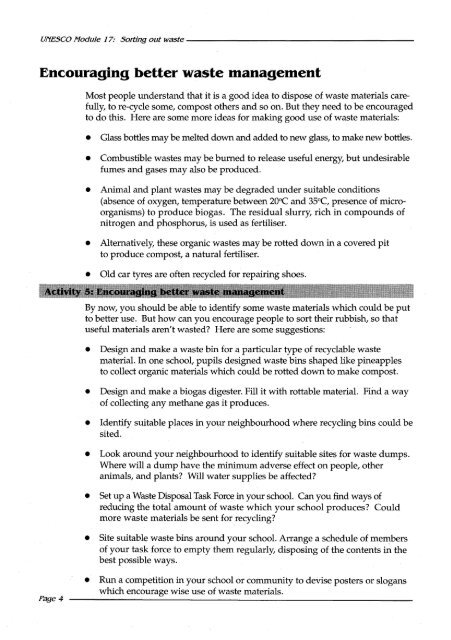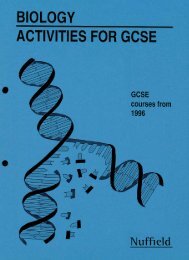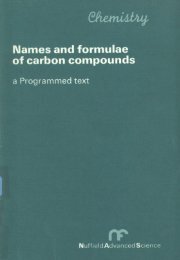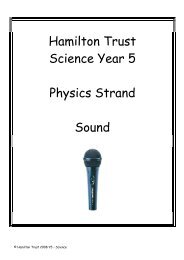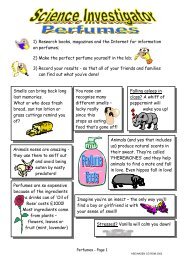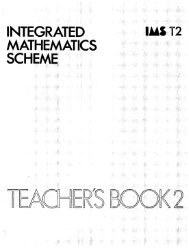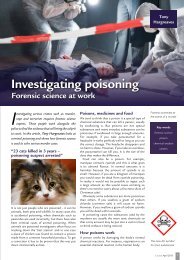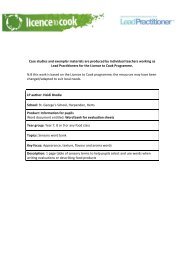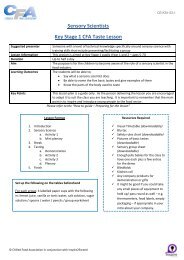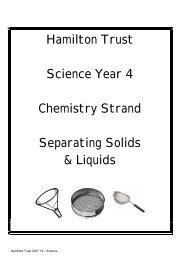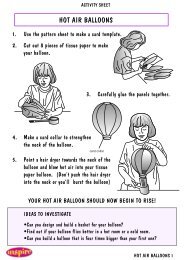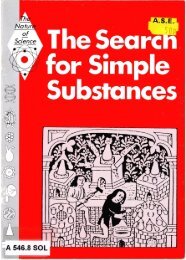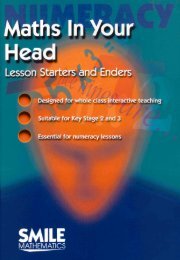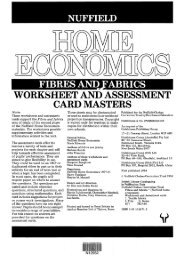UNESCO resource kit - science and technology educa...
UNESCO resource kit - science and technology educa...
UNESCO resource kit - science and technology educa...
Create successful ePaper yourself
Turn your PDF publications into a flip-book with our unique Google optimized e-Paper software.
<strong>UNESCO</strong>Module 17: Sorting out waste -----........-----------------<br />
Encouraging better waste management<br />
Page 4<br />
Most people underst<strong>and</strong> that it is a good idea to dispose of waste materials carefully,<br />
to re-cycle some, compost others <strong>and</strong> so on. But they need to be encouraged<br />
to do this. Here are some more ideas for making good use of waste materials:<br />
• Glass bottles may be melted down <strong>and</strong> added to new glass, to make new bottles.<br />
• Combustible wastes may be burned to release useful energy, but undesirable<br />
fumes <strong>and</strong> gases may also be produced.<br />
• Animal <strong>and</strong> plant wastes may be degraded under suitable conditions<br />
(absence of oxygen, temperature between 20°C <strong>and</strong> 35°C, presence of microorganisms)<br />
to produce biogas. The residual slurry, rich in compounds of<br />
nitrogen <strong>and</strong> phosphorus, is used as fertiliser.<br />
• Alternatively, these organic wastes may be rotted down in a covered pit<br />
to produce compost, a natural fertiliser.<br />
• Old car tyres are often recycled for repairing shoes.<br />
By now, you.should.be able to identify some waste materials which could be put<br />
to better use. But how can you encourage people to sort their rubbish, so that<br />
useful materials aren't wasted? Here are some suggestions:<br />
• Design <strong>and</strong> make a waste bin for a particular type of recyclable waste<br />
material. In one school, pupils designed waste bins shaped like pineapples<br />
to collect organic materials which could be rotted down to make compost.<br />
• Design <strong>and</strong> make a biogas digester. Fill it with rottable material. Find a way<br />
of collecting any methane gas it produces.<br />
• Identify suitable places in your neighbourhood where recycling bins could be<br />
sited.<br />
• Look around your neighbourhood to identify suitable sites for waste dumps.<br />
Where will a dump have the minimum adverse effect on people, other<br />
animals, <strong>and</strong> plants? Will water supplies be affected?<br />
• Set up a Waste Disposal Task Force in your school. Can you find ways of<br />
reducing the total amount of waste which your school produces? Could<br />
more waste materials be sent for recycling?<br />
• Site suitable waste bins around your school. Arrange a schedule of members<br />
of your task force to empty them regularly, disposing of the contents in the<br />
best possible ways.<br />
• Run a competition in your school or community to devise posters or slogans<br />
which encourage wise use of waste materials.


